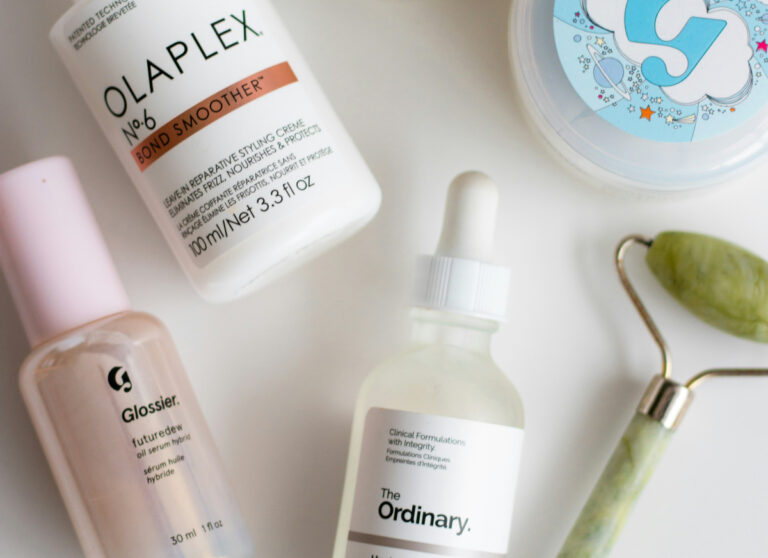
Ever wondered what kind of drama your go-to beauty brands might be embroiled in behind the scenes? From the fragrances that give us unbeatable confidence to the hair care products that promise miracles, some of those can’t-live-without, good-for-the-environment brands are finding themselves at the centre of some rather juicy legal battles. Buckle up, because this isn’t your average beauty scoop!
Jasmine Pickers Practice Child Labour
A BBC investigation recently uncovered that luxury brands like L’Oréal which owns Lancôme and Estée Lauder have a dark secret hidden within their fragrant bottles: child labour. The jasmine that gives Lancôme Idôle L’Intense and Aerin Beauty’s Ikat Jasmine their signature scents is picked by underpaid child labourers in Egypt.
These workers, driven by dire economic conditions and supremely flawed auditing systems, involve their children to make ends meet despite the illegality of this practice. Shockingly, these companies, who boast about ethical sourcing in their marketing, are now facing a backlash as the truth about their supply chains comes to light.
Olaplex’s Hair-Raising Lawsuit
Olaplex, the brand that revolutionised haircare with its bond-building technology, is now fighting to save its reputation. Nearly 30 consumers have sued the company, claiming that its products caused hair loss, hair breakage, and scalp irritation. The lawsuit points to specific ingredients that could be the culprits, stirring panic among loyal users. Additionally, there is a lot of focus on how Olaplex has tried to cover up this fact, by constantly reassuring their customers about the safety of their products.
Each of the cases have been dismissed over claims that they were all different side effects but despite Olaplex’s assurances and extensive testing to prove their products’ safety, the damage to their reputation is significant. The outcome of this case could set a precedent for how beauty brands handle consumer complaints and legal challenges moving forward.
Sephora’s Clean Beauty Confusion
In the realm of clean beauty, things aren’t as clear-cut as you might think. Sephora faced a lawsuit over its ‘Clean At Sephora’ label, accused of misleading consumers about what qualifies as ‘clean’. The lawsuit argued that many products under this label still contain ingredients that do not identify as clean or have vague meanings and might actually be irritating to the skin.
However, the court sided with Sephora, stating that the brand’s criteria were clearly defined and did not imply that products were free of all synthetic ingredients. “Sephora’s ‘Clean at Sephora’ label clearly stated that products with the label were “formulated without parabens, sulfates SLS and SLES, phthalates, mineral oil, formaldehyde and other identified ingredients,” said the brand. Furthermore, the judge ruled in favour of the brand since “Sephora clearly stated specific ingredients that its ‘clean’ products were free from and did not define ‘clean’ as free from all harmful or synthetic ingredients. “
This case highlights the broader issue of varying definitions within the clean beauty industry, leaving us wondering what ‘clean’ really means in today’s day and age.
Johnson & Johnson’s Powder Woes
Johnson & Johnson, the household name in baby care, has had its share of courtroom battles, but none as impactful as those involving its talc-based baby powder. After numerous lawsuits linking their product to cancer due to asbestos contamination, J&J and its spinoff Kenvue have been ordered to pay $700 million in damages to people affected with this cancer; the very same people have been using these talc powders for generations, and have also passed on this practice to their kids.
Asbestos is a naturally occurring mineral and is found in close proximity to talc. This means that the talc was compromised by asbestos. The saga began when investigations revealed that J&J was duly aware of asbestos in their talc products for decades and kept it hidden from regulators like the FDA as well as their regular customers. Despite their shift to cornstarch-based powders, the legacy of these lawsuits continues to haunt them, raising serious concerns about product safety and corporate responsibility.
Unilever’s Aerosol Fiasco
While not a lawsuit, Unilever’s popular aerosol dry shampoos, including Dove and Nexxus, were voluntarily recalled in 2022 due to benzene contamination – a chemical known to cause cancer. This recall was part of a larger issue plaguing the aerosol personal-care market, where propellants used in these products were linked to health risks.
Despite the recall being a precautionary measure, it casts a shadow over the safety of everyday beauty products and puts consumers on high alert about what they’re spraying on their hair.
From unethical labour practices to ingredient controversies, these lawsuits reveal the complex and often murky world behind the products we love. As consumers, it’s important to stay informed and demand transparency, holding these brands accountable not just in the court of law, but in the court of public opinion as well.
Featured Image: Unsplash